By Marissa Hansen
Meet your neighbours
Skunks are nocturnal mammals that are known for their black and white fur and their distinct smell. These animals are known to build dens in urban communities under people’s houses, sheds, and decks. They use these dens to sleep in during the day and become active at night1. While they do live in urban communities, they do become threatened with human contact and can spray when they feel threatened1.
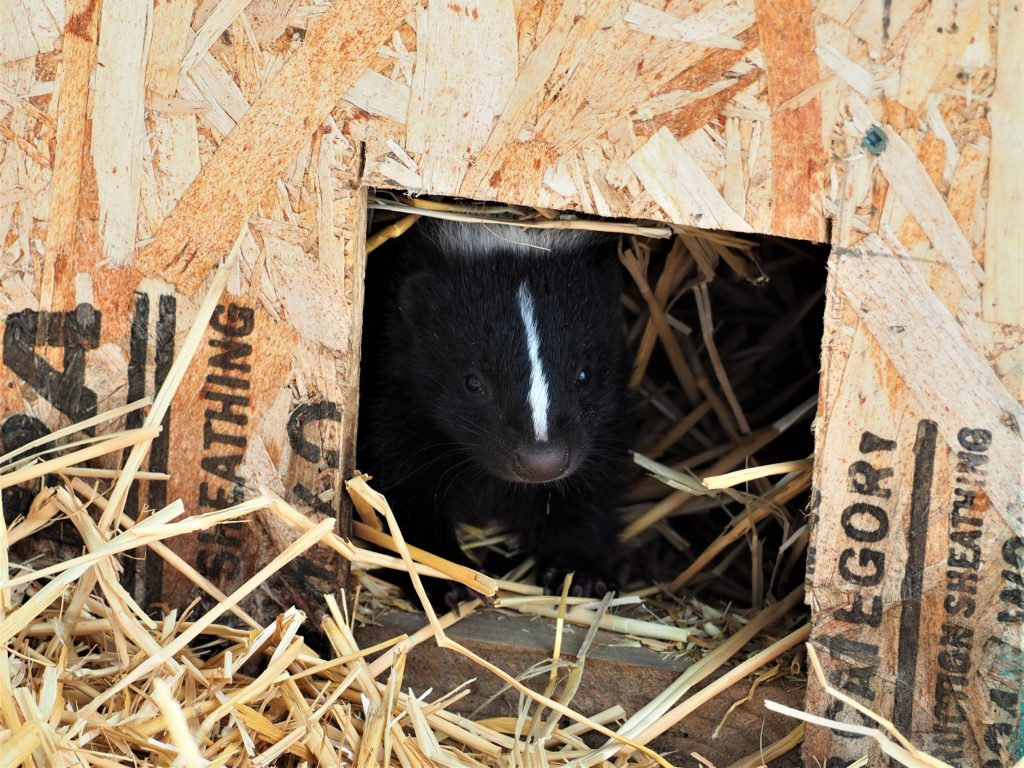
Relocation is not humane
Although skunks may cause disturbances in yards and with humans or pet, people should not actively relocate skunks. Human relocation of skunks can cause issues such as potential harm or death of the animal. When actively relocating a skunk, you are taking the animal away from a place that it has become familiar with and possibly putting it in an environment it will be unable to adapt to2. The skunk may feel out of place in the new environment and be unable to find food, water or shelter3. This could lead to death through malnourishment or dehydration2. The skunk may also be unable to avoid predator or even be placed in a territory of another animal, which can result in a fight and lead to injuries or even death2.
The relocation of a skunk may also cause the separation of the mother and its babies, especially in the spring and summer months. This could cause the babies to die due to lack of resources and nutrients that the mother would provide3. Trapping and relocation of mother skunks is one of the main reasons we need to admit skunk kits to AIWC.
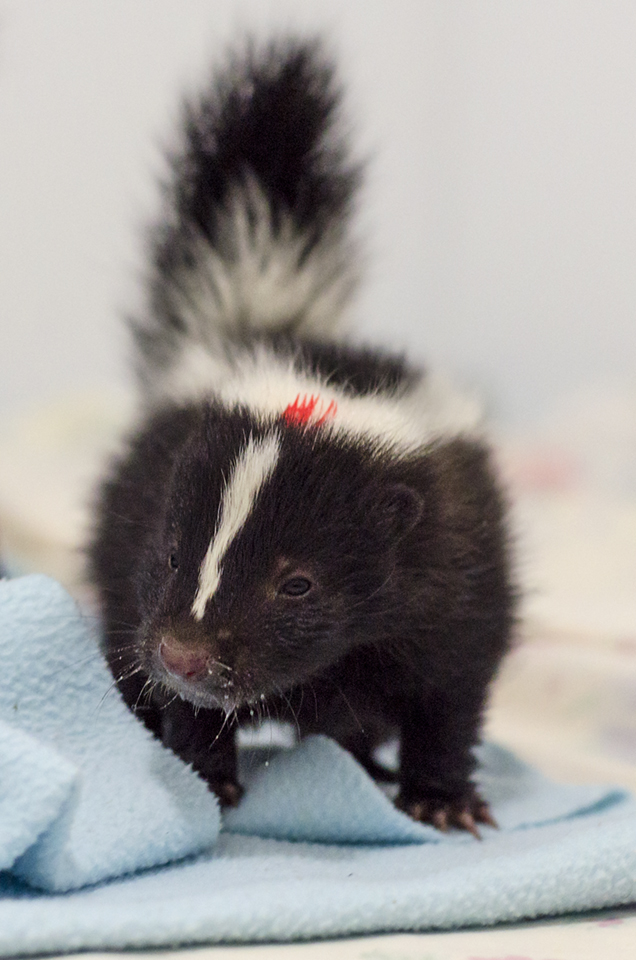
Use deterrents instead!
Relocation of skunks causes more harm than good and allows for a temporary solution, as another skunk or animal will most likely move in next year. The community needs to begin understanding the best ways for deterring skunks rather than relocating them4.Trapping and relocating a skunk without using deterrents will just allow another skunk to move in and fill the vacancy4. Deterring skunks is a much safer approach to removing these animals from your property without causing potential harm. The best way to deter skunks from your property are removing shelter or removing food, overall making your backyards less desirable5.
Use straw, leaves, crumpled paper, and soil to fill in den, making sure there are no adult skunks or baby skunks prior to6. This will begin to deter the animal but wait a couple days before filling in the hole completely as the skunk may break through the first barrier and continue using the hole. A deterrent to use to keep them out of their den are mothballs5. Skunks do not like the smell of mothballs and will leave your property and find shelter elsewhere5.
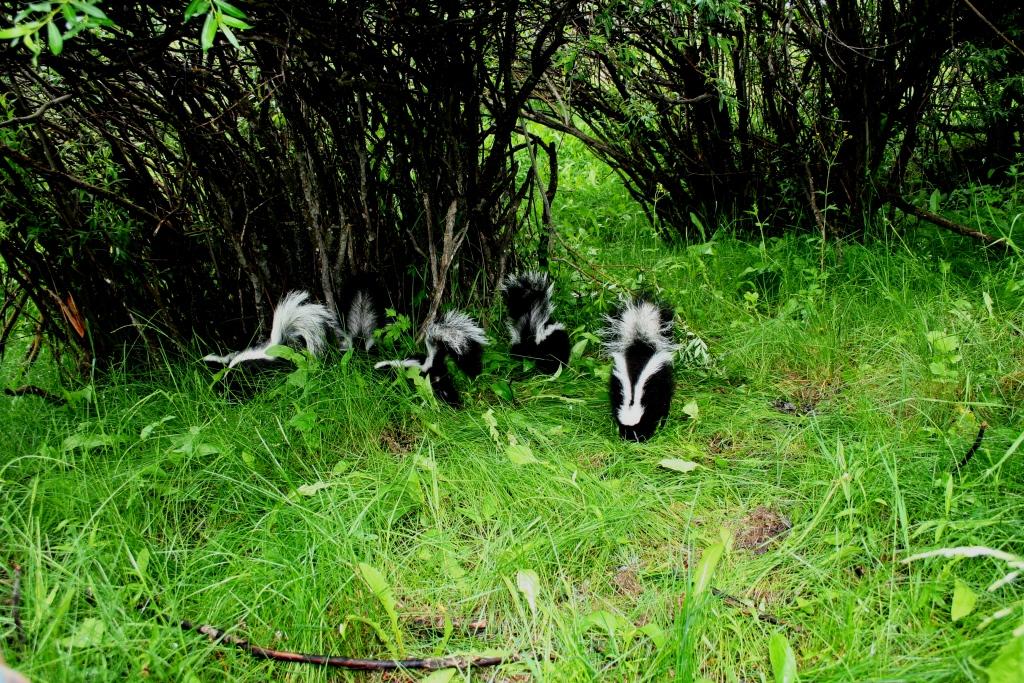
No food? No problem!
Perhaps the best way to deter skunks from your property is removing food. While skunks have a basic diet of insects, birds, and rodents, they also tend to scavenge on food left out on your property5. If you are leaving food outside be sure to keep it in a closed garbage can or recycling bin that have tight fitting lids5. Feed pets indoors to keep from them spreading their food around your backyard as well.
These are some of the ways that we can begin to safely keep skunks off our properties while understanding that they are living creatures that should not randomly be actively trapped and removed from their homes, no matter how smelly. If you see an injured or orphaned skunk, be sure to give us a call on our wildlife hotline a 403-946-2361!
References
1. National Geographic. (n.d.). Skunk. Animals. https://kids.nationalgeographic.com/animals/mammals/facts/skunk.
2. The Humane Society of the United States. (n.d.). Scrap the trap when evicting wildlife. The Humane Society of the United States. https://www.humanesociety.org/resources/scrap-trap-when-evicting-wildlife.
3. Toronto Wildlife Center. (2017, December 17). Trapping Skunks. Toronto Wildlife Centre. https://www.torontowildlifecentre.com/wildlife-emergency-rescue-hotline/conflicts-with-wildlife/common-skunk-problems/trapping-skunks/.
4. PETA. (2013, October 15). Living in Harmony With Skunks. PETA. https://www.peta.org/issues/wildlife/living-harmony-wildlife/skunks/.
5. Government of Alberta. (n.d.). Human-wildlife conflict – Skunks. Alberta.ca. https://www.alberta.ca/skunks.aspx.
6. The Humane Society of the United States. (n.d.). What to do about skunks. The Humane Society of the United States. https://www.humanesociety.org/resources/what-do-about-skunks.
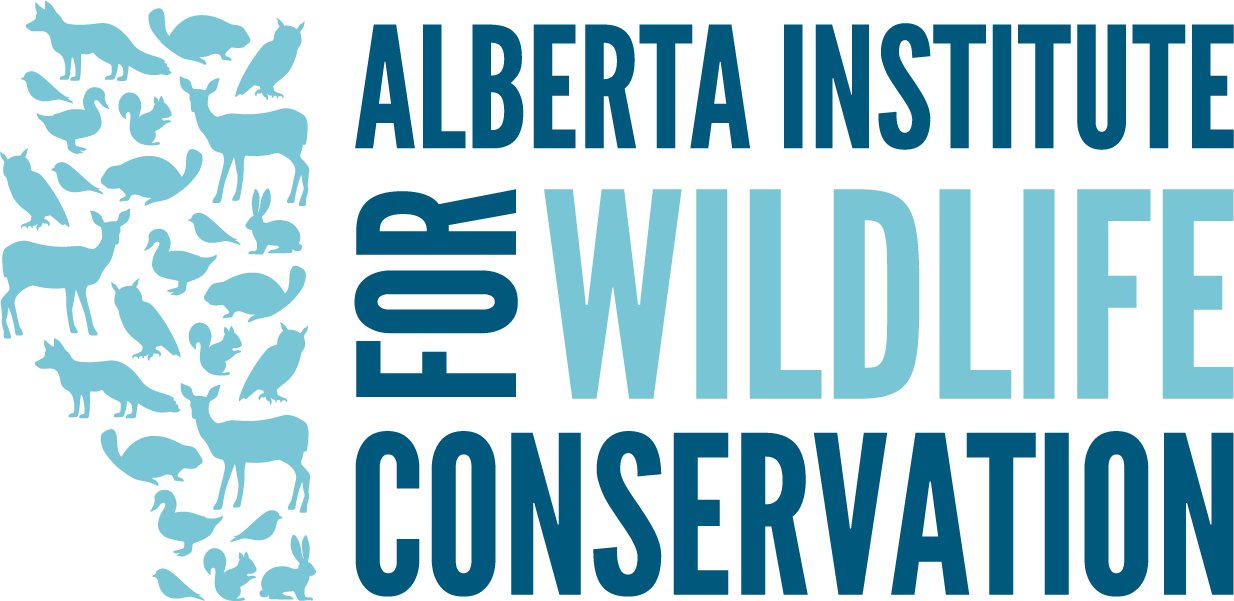
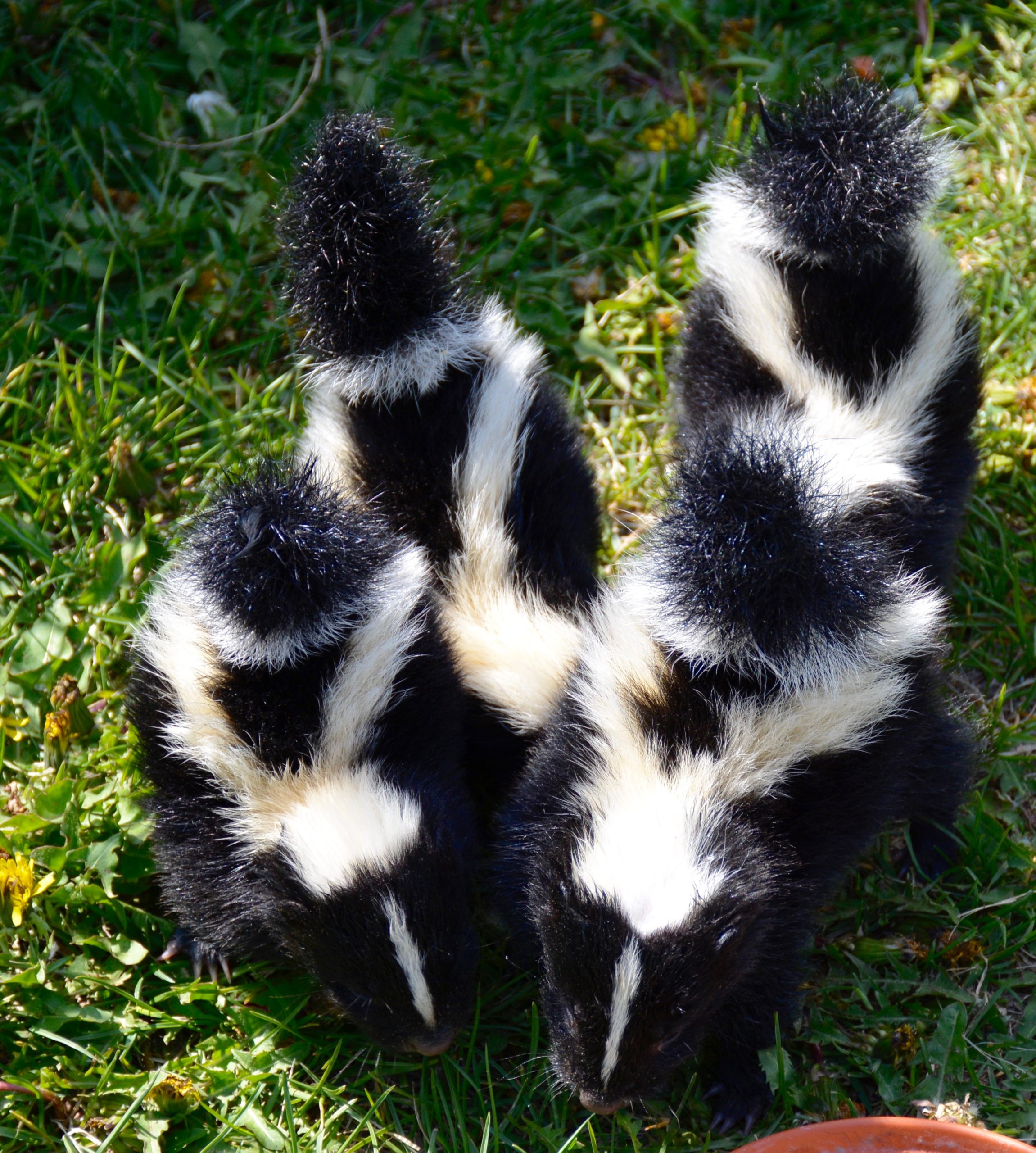
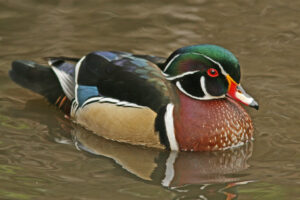
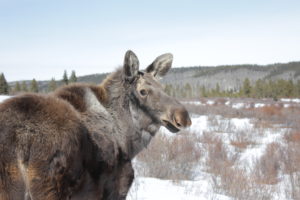
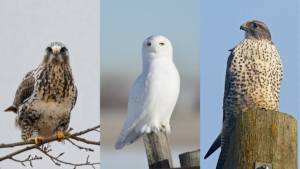

2 thoughts on “SOS: Save our skunks!”
The area I live has a number of skunks and lately I found 3dead ones there does not appear to be any blood around I am concerned as to what is happening
Unfortunately it is hard know what could be happening to them, it could be poisoning or it could be a virus, like distemper. It doesn’t hurt to report it to your governing body (though they likely will not do anything unless there are multiple reports), as well as call the city to remove the bodies as to not spread disease.